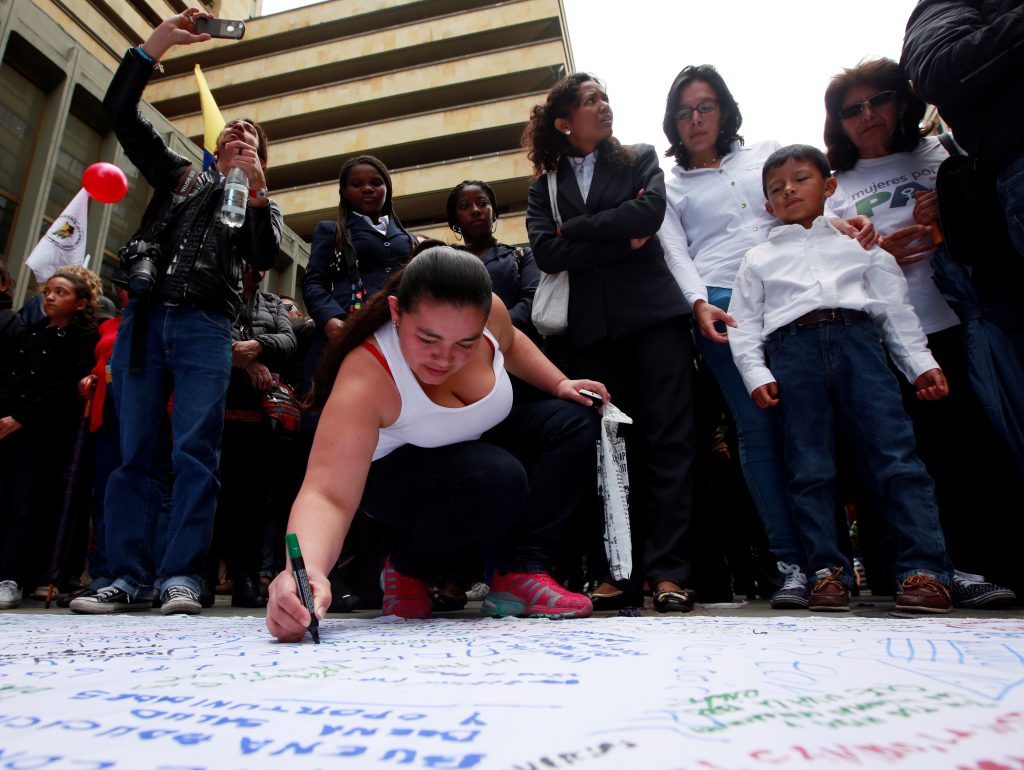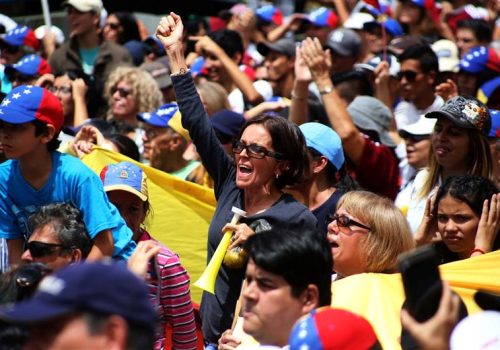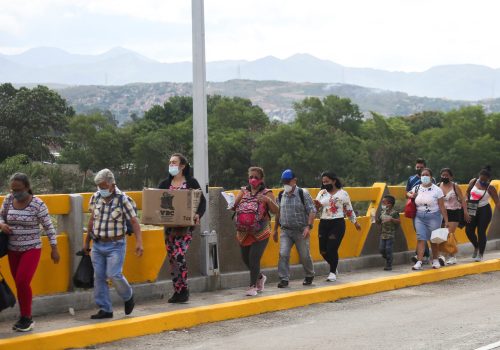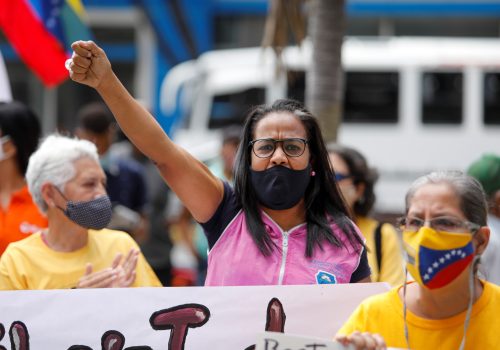The Adrienne Arsht Latin America Center’s Red de Apoyo women’s project, is a partnership with Universidad Católica Andres Bello (UCAB) and Global Affairs Canada that convenes more than sixty 2015 National Assembly women representatives, Interim Government women ambassadors, and civil society leaders to promote increased and more equitable leadership of Venezuelan women in democratic and peace building processes.
In April 2022, the Atlantic Council hosted a virtual roundtable for its Red de Apoyo project to discuss how Venezuelan women leaders could learn from Colombian women’s leadership leading up to and during the 2016 Colombian Peace Accords. Led by experts Marina Gallego of the Colombian NGO Ruta Pacífica de las Mujeres and Selene Soto of the international NGO Women’s Link, Red de Apoyo participants analyzed key similarities and differences between the Colombian conflict and the Venezuelan crisis.
Both experts emphasized that women’s participation in the Colombian peace process was crucial to its political viability, particularly through institutionalized venues like the peace process’s sub-commission on gender. The Colombian peace process highlighted the essential role of women in promoting long-term political and social stability and included women from each conflicting party. As part of the reconciliation process, Colombian women held thematic forums, a women’s summit, sent proposals to the negotiation table between the government and the FARC (Revolutionary Armed Forces of Colombia), secured female participation in the country’s Truth Commission, and strengthened ties with the international community.
From the Colombian case study, the Red de Apoyo members identified the following actionable recommendations to implement in their role as democratic political leaders and civil society activists:
- Disaggregate the population of women whose needs they are advocating for and trying to serve. Acknowledge the socioeconomic and/or racial diversity that exists within Venezuela’s women.
- Consider how different constituencies of women may have different policy needs during a peace or transition process and create tailored policies to address marginalized groups.
- Depoliticize, to the extent possible, the conversations or organizations surrounding the defense of human rights, and advocate for the increased presence of women in leadership roles.
- Engage male leaders in politics and civil society to establish a consistent channel of communication and advocacy for female inclusion in peace negotiations.
- Work together with male leaders in politics and civil society to create a shared gender-based agenda for peace that prioritizes women’s policy needs.
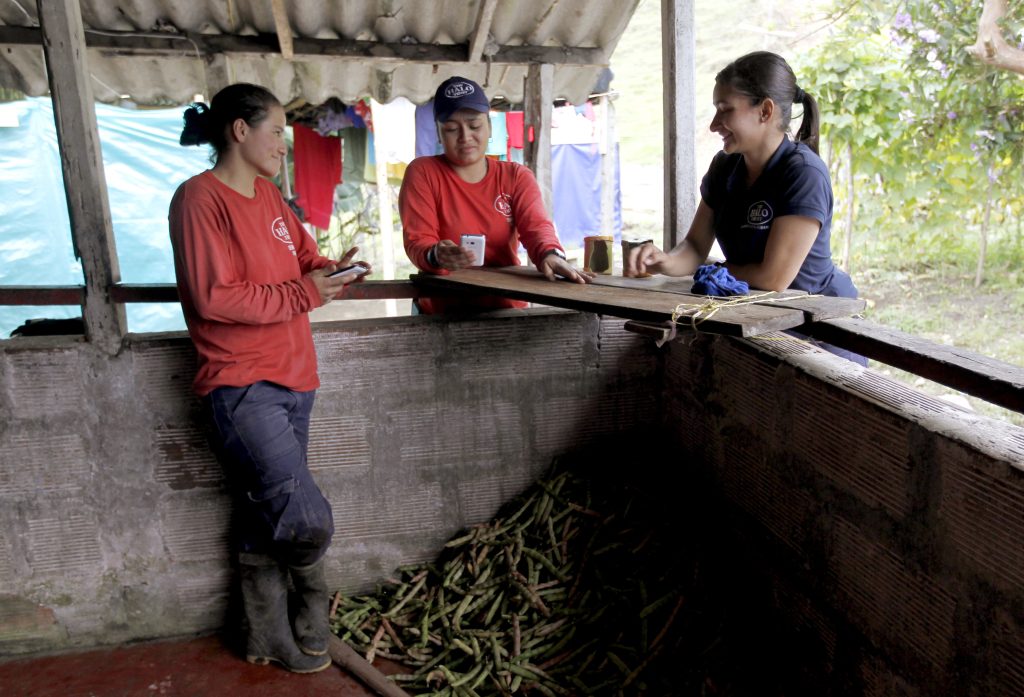
Given the recommendations outlined above for Venezuelan democratic leaders, US policymakers should consider responding through the following policy actions:
- Work with international allies to create forums for conducive dialogue between male and female democratic leaders in Venezuela and the diaspora.
- Legitimize negotiation tables that include women from all sides of the political spectrum through international recognition and support.
- Send congressional delegations composed of US female lawmakers from different ideological and ethnic backgrounds to Venezuela for bilateral trust-building discussions with the Maduro government’s senior female leaders and female leaders from the democratic opposition.
- Encourage male democratic politicians in Venezuela to meet with and incorporate feedback from their female counterparts by making this a precondition of meeting with senior US officials.
Related Content

The Adrienne Arsht Latin America Center broadens understanding of regional transformations and delivers constructive, results-oriented solutions to inform how the public and private sectors can advance hemispheric prosperity.
Image: Colombian women sign a banner celebrating the ceasefire deal between the Colombian government and FARC rebels in Bogotá, June 2016.
